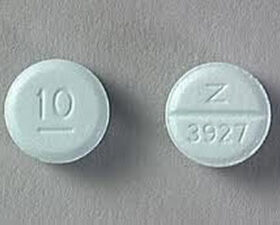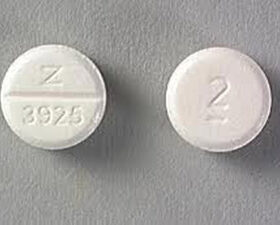- Your cart is empty
- Continue Shopping

Shop
Buy Diazepam Online

At Anxietymedsusa, you can easily buy Diazepam online with same-day delivery. Additionally get all brands like Adderall, Xanax, and More generic medicines In the USA.
What is Diazepam?
Diazepam, commonly known as Valium, is a benzodiazepine medication used for multiple psychiatric and medical conditions. The mechanism involves boosting the impact of a brain neurotransmitter known as gamma-aminobutyric acid (GABA), leading to a soothing influence.
Diazepam is prescribed for anxiety disorders, alcohol withdrawal symptoms, muscle spasms, and certain types of seizures. Due to its fast onset and powerful anxiolytic properties, it is also one of the most widely recognized and commonly prescribed benzodiazepines today. However, it does have habit-forming potential, so it should only be taken under medical supervision.
Medical Uses of Diazepam
Diazepam is primarily prescribed for the treatment of anxiety, alcohol withdrawal, and muscle spasms.
Anxiety
Diazepam is frequently prescribed for short-term relief of symptoms related to anxiety disorders. It works by enhancing the effects of gamma-aminobutyric acid (GABA), a neurotransmitter that inhibits brain activity, resulting in a calming effect that can relieve feelings of anxiety and worry. Diazepam allows GABA to bind more readily to its receptors in the brain, allowing for reduced neuronal excitability. This makes it useful for reducing physiological effects like rapid heart rate, sweating, tremors, and restlessness associated with anxiety.
Alcohol Withdrawal
Diazepam is useful in the management of acute alcohol withdrawal syndrome. Sudden stoppage of alcohol consumption in heavy drinkers can trigger withdrawal symptoms like tremors, agitation, seizures, and delirium tremens (DTs). By facilitating GABA activity and reducing neuronal excitability, diazepam can help control the central nervous system hyperexcitability associated with alcohol withdrawal. It is often administered as the initial treatment to help safely manage withdrawal symptoms.
Muscle Spasms
Diazepam is also sometimes prescribed to relieve muscle spasms and spasticity. It works as a muscle relaxant by enhancing GABA’s inhibitory effects. This calming action on the central nervous system can help relax muscles and relieve painful contractions and spasms, especially those related to conditions like cerebral palsy, paraplegia, and multiple sclerosis. However, its muscle relaxant effects mean it should be used cautiously in people with these conditions, as it may exacerbate muscle weakness.
How Diazepam Works?
Diazepam is a benzodiazepine medication that works by enhancing the effects of gamma-aminobutyric acid (GABA), a neurotransmitter that inhibits brain activity. When GABA is more active, nerve impulses slow down, which produces a calming effect.
Specifically, diazepam binds to benzodiazepine receptors on GABA-A receptors. This increases the opening frequency of the chloride ion channel, allowing more chloride ions to enter the neuron. The increased chloride ion influx hyperpolarizes the neuron membrane, making it more difficult for nerve impulses to fire.
Diazepam Dosage Information
Diazepam is available in oral tablet and liquid forms and is also administered intravenously. It comes in dosages ranging from 2mg to 10mg. The typical recommended dosage for adults is 2-10mg 2-4 times per day. Maximum dosage is 40mg per day.
Diazepam is prescribed at the lowest effective dose, and dosage is increased gradually as needed and tolerated. Doctors take into account the condition being treated, age, weight, and other factors when determining the appropriate dosage for each patient. Lower doses are usually recommended for older adults and those with certain conditions like liver impairment, lung disease, or sleep apnea.
Dosage may be tapered gradually when stopping diazepam to reduce withdrawal symptoms. Breakthrough anxiety may be treated with an additional 2-5mg dose as needed, but it’s important not to exceed the maximum daily dosage. Extended-release forms of diazepam are also available for more gradual absorption over the day.
Side Effects of Diazepam
Diazepam often causes side effects, some of which can be serious. The most common side effects include:
Sedation: Diazepam may cause drowsiness and sleepiness. This effect often occurs when first starting treatment or increasing the dose. It’s more likely at high doses. Older adults and people who take other sedatives are at higher risk. The sedation often decreases over time with continued use.
Addiction: With regular, long-term use, diazepam can lead to physical and psychological dependence. Stopping abruptly may trigger withdrawal symptoms like anxiety, shaking, sweating, and insomnia. The medication should not be stopped suddenly without medical supervision. People with a history of substance abuse are at higher risk of becoming addicted.
Some other potential side effects are slurred speech, confusion, depression, blurred vision, nausea, changes in sex drive, and more. Tolerance can build with regular use, needing higher doses for the same effect. Elderly people tend to be more sensitive to side effects. In rare cases, paradoxical reactions may occur, causing agitation, aggression, and stimulant effects. Seek medical attention for any concerning or serious side effects.
Diazepam Warnings
Diazepam should not be used by individuals with:
Myasthenia gravis – Diazepam can worsen muscle weakness in people with this neuromuscular disease.
Severe liver disease – Diazepam is metabolized by the liver, so liver impairment can increase side effects and toxicity.
Respiratory problems – Diazepam depresses respiration so should be avoided in people with breathing difficulties like COPD or sleep apnea.
Pregnancy and breastfeeding – Diazepam crosses the placenta and is excreted in breast milk, so should be avoided unless the benefits outweigh the risks.
Depression, suicidal ideation – Diazepam can worsen depression and increase suicidal thoughts and behavior.
Interactions
Diazepam has potentially major interactions with many other drugs and substances. It is important to discuss all medications and supplements you are taking with your doctor before starting diazepam.
Some of the major drug and substance interactions include:
Opioids like oxycodone, hydrocodone, and morphine – Concurrent use increases the risk of dangerous side effects including slowed or difficult breathing and excessive sedation.
Antidepressants like fluoxetine, paroxetine, and sertraline – Can increase diazepam levels in the body, enhancing its effects and side effects.
Muscle relaxants like cyclobenzaprine and tizanidine – Using diazepam further increases central nervous system depression.
Antihistamines like diphenhydramine – Further enhancement of sedative properties when combined with diazepam.
Alcohol – Alcohol dramatically amplifies the sedative effects of diazepam, increasing risks. Avoid alcohol when taking diazepam.



